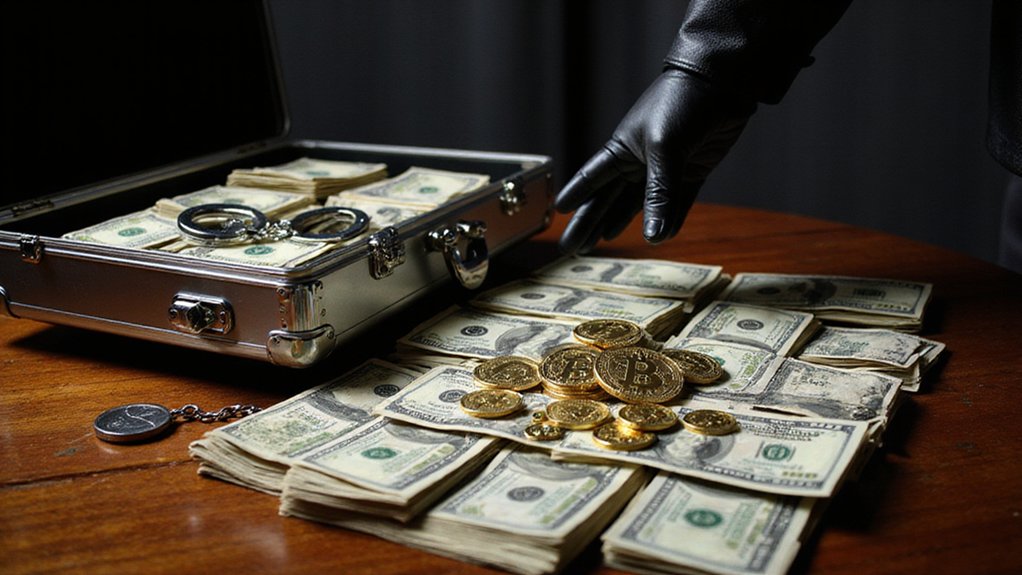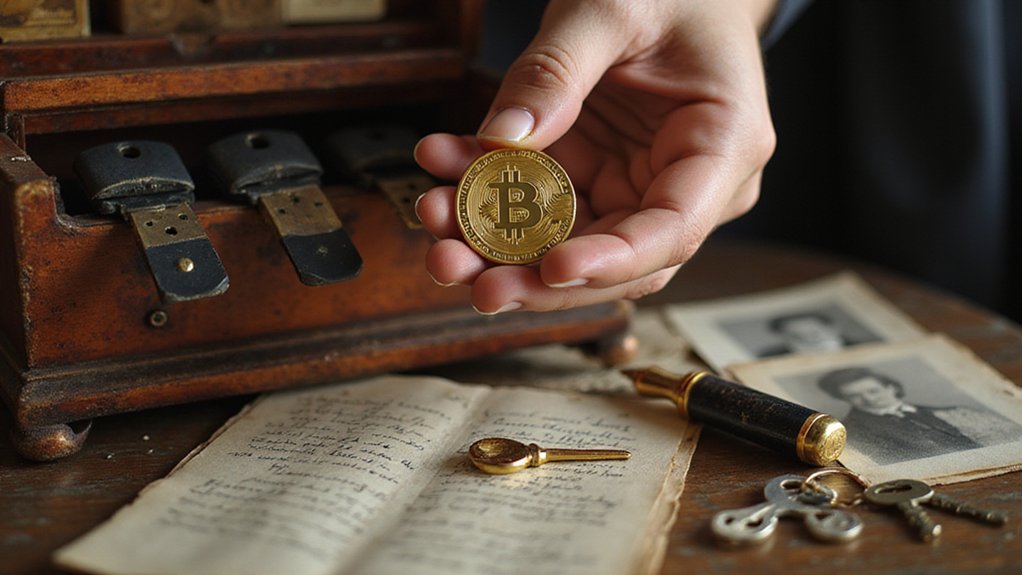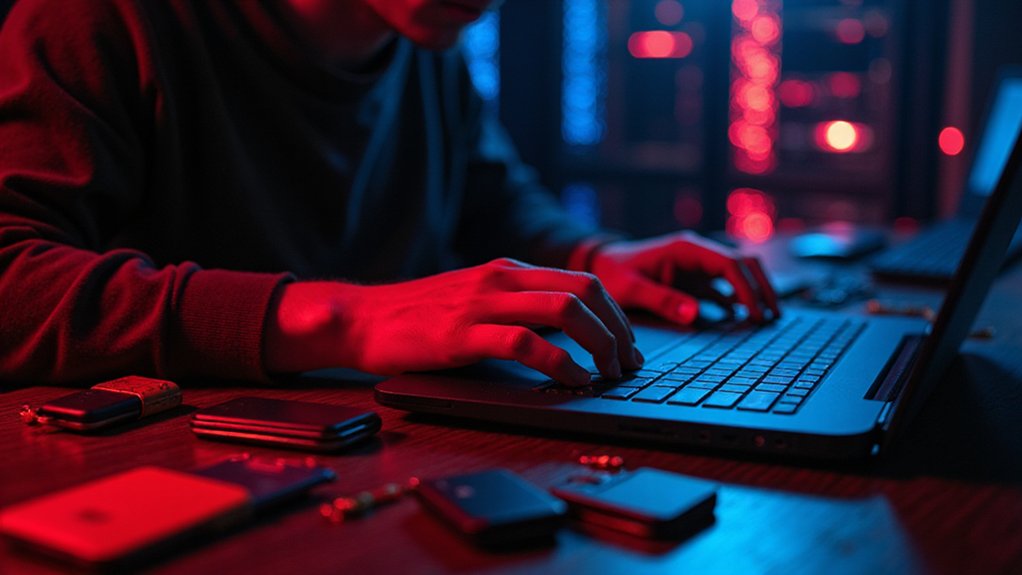Nearly $400 million in seized cryptocurrency now sits in what has become one of the world’s largest cold storage wallets—not belonging to some tech billionaire or institutional investor, but rather to an agency better known for protecting presidents and investigating counterfeit currency.
The US Secret Service has quietly transformed into an unlikely crypto custodian over the past decade, consolidating assets recovered from global fraud networks into a single cold-storage wallet that rivals institutional holdings. This digital treasure trove stems primarily from complex scam operations, including a particularly devastating $225 million USDT seizure linked to romance-investment schemes targeting vulnerable demographics.
The Secret Service now controls nearly $400 million in seized cryptocurrency, becoming an unexpected digital asset custodian through global fraud investigations.
The agency’s metamorphosis from physical security to digital asset recovery reflects the evolving landscape of financial crime. Their Global Investigative Operations Center (GIOC) now spearheads worldwide efforts to dismantle cryptocurrency fraud networks, employing sophisticated blockchain analysis techniques that trace stolen assets across multiple transactions with forensic precision.
Criminal overconfidence has proven remarkably beneficial to investigators. VPN failures expose IP addresses, sloppy domain registrations create paper trails, and operational errors map entire fraud networks. The Secret Service leverages these mistakes alongside advanced open-source intelligence and strategic subpoenas to penetrate schemes that often involve fake investment platforms, romance scams, and extortion operations.
Attorney Kali Smith leads the agency’s cryptocurrency strategies, coordinating multi-agency efforts that include FBI collaboration and U.S. Attorney’s Office involvement in major cases. This institutional approach has proven effective against fraudsters who target older demographics—groups that collectively lost nearly $2.8 billion in recent years to crypto-related scams.
The agency’s influence extends beyond domestic borders through thorough training programs conducted across 60 countries. These week-long workshops enhance cross-border enforcement capabilities while addressing jurisdictions with lax crypto regulations, creating a global network of informed investigators capable of identifying emerging threats. Many participants arrive largely unaware of crypto-related crime issues within their own jurisdictions until completing the comprehensive training sessions.
Public-private partnerships amplify recovery efforts considerably. Collaborations with exchanges like Coinbase and stablecoin issuers such as Tether facilitate asset tracing and freezing, while data sharing agreements enhance large-scale recovery operations. Celebrity endorsements from figures like Elon Musk have contributed to the celebrity influence on cryptocurrency markets, making certain digital assets more attractive to scammers seeking to exploit investor sentiment.
This cooperative approach transforms reactive investigations into proactive disruption campaigns, positioning the Secret Service as an unexpected but formidable guardian of digital asset integrity.









